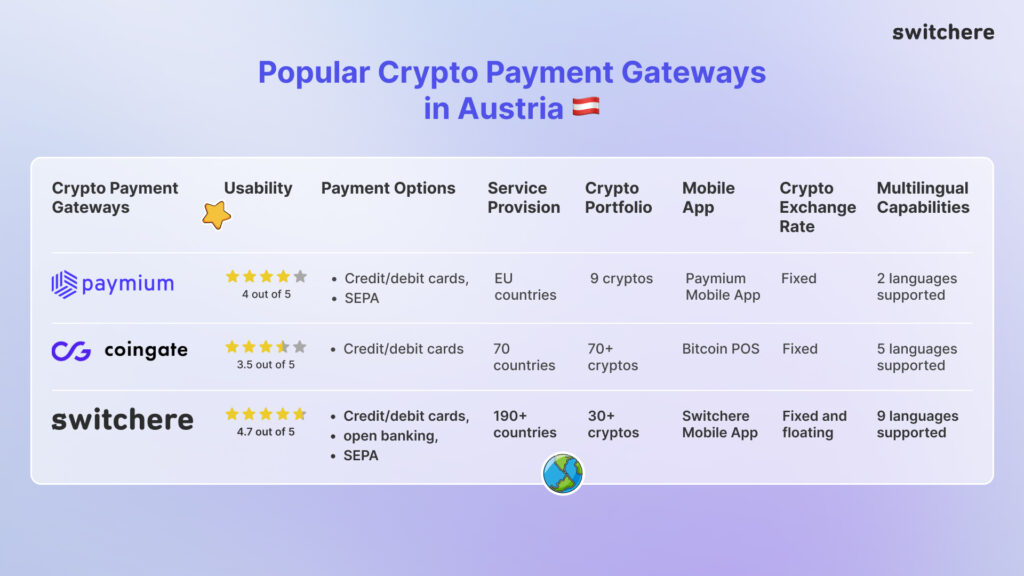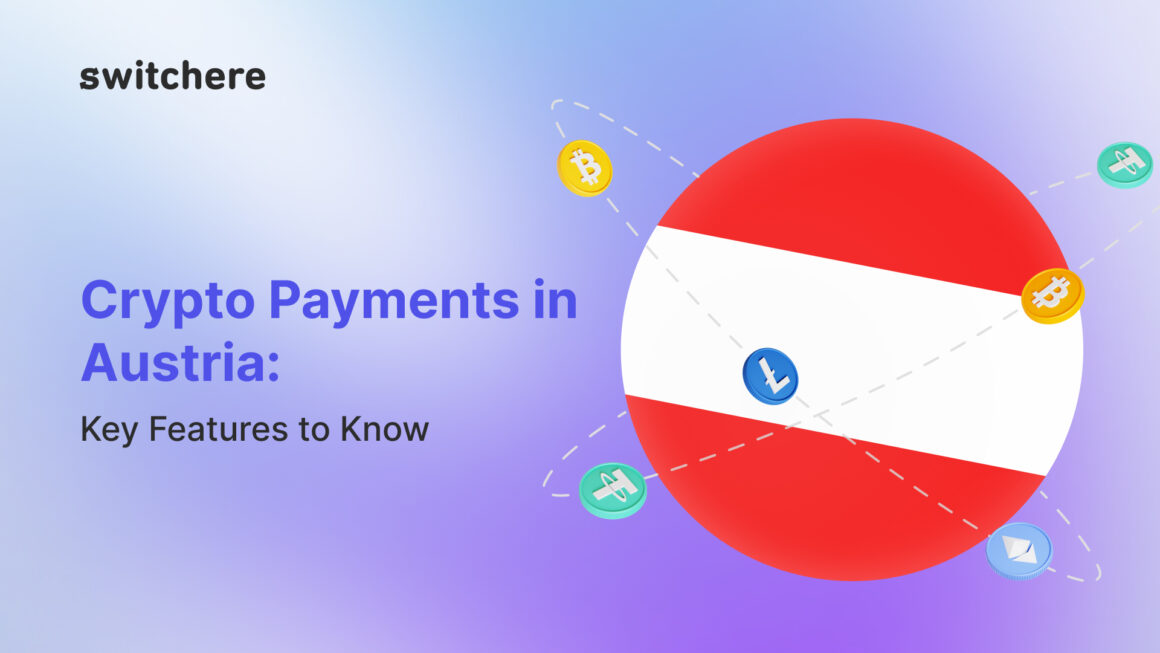As the digital currency landscape continues to evolve, Austria has emerged as a proactive participant, embracing the opportunities and challenges presented by cryptocurrencies. This article explores the current scenario of crypto payments in Austria, focusing on the legal framework, regulatory environment, and the crypto payment gateways available within the country.
Legal and Regulatory Framework
Austria has adopted a balanced approach towards cryptocurrency regulation, aiming to foster innovation while ensuring investor protection and financial stability. The Austrian Financial Market Authority (FMA) plays a pivotal role in overseeing digital assets, guided by both national laws and European Union directives.
Cryptocurrencies in Austria are recognized as financial instruments, which places them under the scope of existing financial regulations. The FMA has been clear about its stance on digital assets, emphasizing the need for compliance with Anti-Money Laundering (AML) and Counter Financing of Terrorism (CFT) requirements.
Licensing Requirements for Crypto Businesses
In Austria, entities engaging in crypto-related activities, such as trading platforms, wallet providers, and payment services, must adhere to specific regulatory standards. These include obtaining a license from the FMA and ensuring strict compliance with AML/CFT regulations. The clear regulatory guidelines provide a secure environment for businesses and consumers alike, fostering trust and adoption of crypto payments.
Popular Crypto Payment Gateways in Austria
The adoption of crypto payment gateways in Austria reflects the country’s openness to digital innovation. Several platforms have established their presence, offering businesses the opportunity to integrate cryptocurrencies as a payment method.

Paymium
Focused on the European market, Paymium offers a reliable gateway for businesses to accept Bitcoin payments, providing a secure and user-friendly platform for transactions. In fact, the France-based company is one of the oldest and most renowned pioneers in virtual currency to fiat transactions in the Eurozone. It has been involved in crypto-related business operations since 2011 and offers services such as OTC deal conclusion, recurring crypto purchases, cold asset storage, etc. However, the available virtual currency portfolio is rather limited, and payment methods are scarce.
CoinGate
Serving a broad European market, including Austria, CoinGate allows merchants to accept various cryptocurrencies, offering features like real-time settlements in euros to mitigate volatility risks. It is based in Lithuania, and the company has been in the crypto business for about ten years. CoinGate is largely focused on simple and understandable crypto exchange operations with a functional dashboard, sandbox environment, libraries, and easy-to-embed plugins.
Switchere
European-based company Switchere positions itself as a trendsetter in the crypto exchange industry. Switchere is involved in B2C and B2B business models and has a vast global presence in Eurasia, the Americas, Africa, and Australia.
Switchere lets small, middle-size, and large business entities accept crypto payments and settles all online payments virtually instantaneously. Switchere takes care of KYC, CDD, AML compliance, anti-fraud filters and provides ready-made and customizable payment solutions 24/7.
Businesses can integrate fiat-on-ramps powered by Switchere via the Switchere API tools and widget SDK. Simple and straightforward merchant integration lets business entities in Austria monetize their customer traffic in a speedy and convincing fashion, raise brand awareness, and diversify their service provision.
Overall, these gateways exemplify the growing infrastructure supporting crypto payments in Austria, enabling businesses to tap into the burgeoning market of digital currency users.
Future Outlook
Austria’s regulatory framework for cryptocurrencies is expected to evolve in tandem with the global digital asset landscape. The country’s proactive stance, combined with its robust financial services sector, positions it well to adapt to emerging trends and technologies in the crypto space.
Austria’s journey with cryptocurrencies showcases a commitment to innovation balanced with regulatory prudence. The country’s legal and regulatory environment provides a solid foundation for the growth of crypto payments, offering businesses and consumers the benefits of digital currencies while ensuring a secure and compliant ecosystem. As the global interest in cryptocurrencies continues to surge, Austria’s approach serves as a model for integrating digital assets into a traditional financial system, promising a future where digital and fiat currencies coexist harmoniously.
